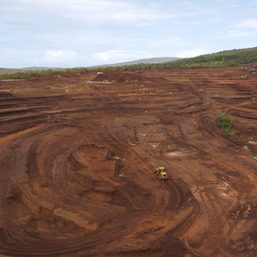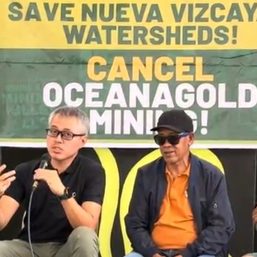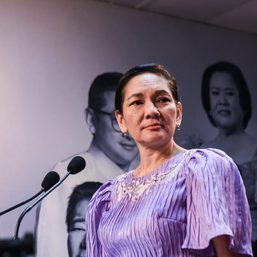SUMMARY
This is AI generated summarization, which may have errors. For context, always refer to the full article.

NEGROS OCCIDENTAL, Philippines – The Philippine government should address issues in the mining sector as the country joins the transition from fossil fuel-based energy to renewable sources, several groups said.
Bantay Kita, a coalition of civil society organizations working on the extractive sector in the Philippines, said the transition to renewable sources may worsen the impacts of large-scale mining operations in the Philippines.
The group said that “the government vulnerabilities and issues within the mining sector should be addressed before the country decides to commit to a head-on energy transition.”
The group cited nickel, cobalt, and copper as significant minerals in the country, referred to as transition minerals used by processing companies to develop products and technologies needed in the energy transition.
“Globally, the Philippines is ranked fourth in copper reserves, fourth in cobalt reserves, and sixth in nickel reserves, making the country one of the main targets of global investors scrambling for transition minerals, which also contains risks associated with free trade and bilateral agreements,” the group said in their statement.
John Edison Ubaldo, Bantay Kita’s Knowledge Mobilization Specialist, citing the result of their study, said, “The Philippine government also lacks an institutionalized policy framework that upholds the state’s duty to safeguard host communities from human rights issues rooted from extractive activities.”
Ubaldo said that as the need for renewable energy grows, so does the probability of putting communities’ lives and resources at risk. Thus, a “just energy transition” is suggested to focus on the equitable and ethical transformation of energy use towards a low-carbon economy.
According to Ubaldo, their study also stressed the importance of creating a “Just Energy Transition-Transition Mineral Accountability Roadmap” that will outline the goals and significant steps beneficial “for a community-centered energy transition.”
Bantay Kita’s study recommended the passage of Senate Bill No. 1125 or An Act Providing for the Creation of the Philippines Extractive Industries Transparency Initiative (PH-EITI), as a regulatory body for the extractive industries.
Under the proposed bill, the PH-EITI must disclose all data on material, national, and local payments, revenues sourced from the extractive activities; and all concessions, contracts, licenses, agreements, and joint ventures available to the public.
Ubaldo said that this will address the Philippines’ lack of financial transparency in revenues collected by the government from the extractive sector.
Bantay Kita also recommended an administrative order on the a credible CSO selection process at the local level in mining oversight committees, such as the Multipartite Monitoring Team (MMT) and the Mine Rehabilitation Fund Committee (MRFC) to ensure equity and meaningful engagement and representation.
As of now, there is only one seat available for CSOs in mining oversight committees, Bantay Kita said. – Rappler.com
Add a comment
How does this make you feel?








There are no comments yet. Add your comment to start the conversation.